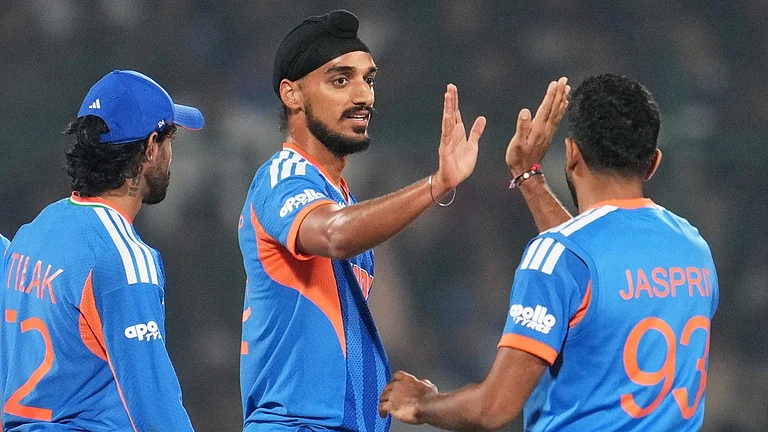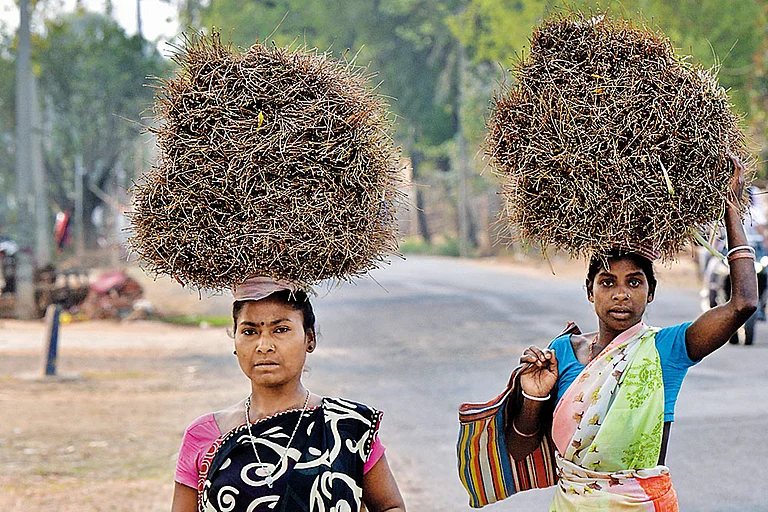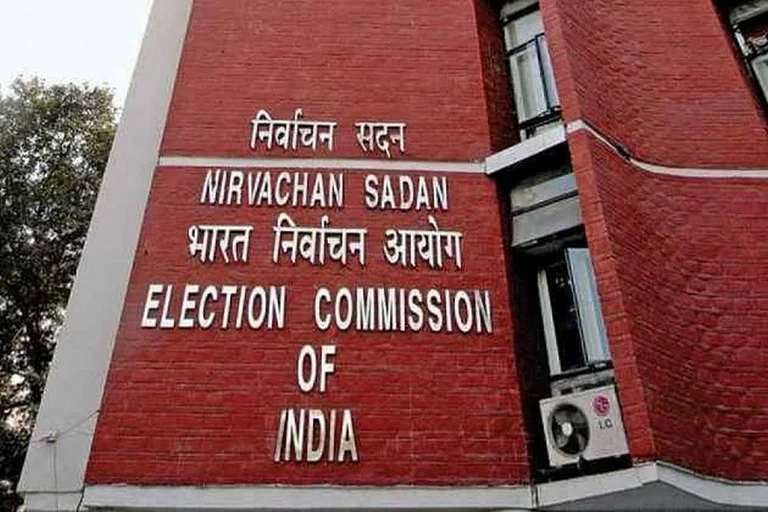Outlook caught up with three comedians, Amit Tandon, Urooj Ashfaq and Akash Gupta over a zoom conversation on how the comedy landscape has changed along with the formats with the pandemic. Though comedy has gone digital, comedians miss doing live shows, and all the laughter and the spitting. Comedians don’t seem to be happy with performing from a distance, but with comedy going digital they are trying to adapt to the situation.
Netflix is coming up with the show ‘Comedy Premium League’ which is releasing on 20th August. It will have 16 of India’s top comedians who will be divided into four teams to fight against each other. Stand-up comedian Amit Tandon narrates, “It was in 2010 that live stand-up comedy started opening up and the audience for live stand-up comedy shows would be only in Mumbai, Bengaluru and Delhi. At that time if we counted them, it wouldn’t have been more than 1000 people across India. But now the scene has changed with the number of viewers being more than 30 to 40 million.”
Today social media has kind of democratized the performance-arts space. So, that’s what happened in stand-up comedy in the last one decade. It has basically moved from a television-based thing to live shows and now it has gone digital too.
Tandon adds, “In one city even after the lockdown you will have ten to 15 shows per day and the number of people who are performing live stand-up has gone up tremendously. Initially it was just [people like] Vir Das and Boman Irani. There were about five or seven people who were getting paid to do live stand-up shows. Today there are at least 300 to 400 comedians in India who are actually making their living through stand-up comedy.”
Social media has also helped in bringing about a change in comedy. With WhatsApp and Instagram, the formats are constantly evolving. The consumption of comedy has increased too with these numerous ten-second videos popping up on the smartphones.

“The length of the comedy videos has shortened. Now there are not just stand-up comedians, we have merged with reels on social media and Youtube videos too. The regular formats have still survived like comedy on television and films and now the OTT platforms have given a boom to comedy.”
Comedy is the need of the hour considering the pandemic situation. Urooj Ashfaq says, “Everybody wants to feel that things are normal - the way it used to be. And going for a stand-up show whether it is on zoom or on OTT, both for the viewers and the performers it will help to take your mind off depressing things.”
Like all professions have a responsibility towards the society, artistes too have a responsibility and when it is comedy, it is these comedians who can help in increasing the happiness quotient in our life. Comedian Akash Gupta says, “I think the responsibility as a comedian is to do a good show and to make people laugh. During the second wave I kept getting messages on Instagram, when people were in isolation and hospitals, saying that they love to watch my comedy videos and they used to send messages mentioning that my videos are making them feel better. So, I feel I have contributed to society by bringing about some fun times in their life when the whole world is going through a gloomy phase.”
Being humorous can also have a hint of meanness as well. Says comedian Urooj Ashfaq, “I think pulling legs and a hint of meanness is acceptable. There is ‘punching up’ and ‘punching down’ in comedy. Punching up is like making jokes on someone who has more power so that is considered okay because their status is above you in society and punching down is making a comment on those who have less power. There is no rule in comedy, but it is always nice to avoid punching down. But you should always take into account the sensibilities of your audience and how your jokes come across to them. Your intentions may not be to hurt anybody’s feelings, but if someone tells you that the impact of your joke was negative, you should stop right there. I think it is okay to take some accountability and avoid those areas next time."
But Amit Gupta feels that there are people especially on social media who get offended at everything. The comedians are exploring different formats these days because the live shows have got cancelled and now even if it is happening it is with just fifty percent capacity. He says, “Now to keep myself in circulation on social media platforms, I have started posting pictures on social media with funny captions, which I never did before. These changes we had to adapt to purely because of the pandemic.”
Though comedy is going digital, the comedians are truly missing the live shows. Urooj says that live shows have started but at half capacity with social distancing. She explains, “If you have sitting for 50 people, they are only letting in only twenty. The audience has to keep their masks on. It’s not the same, but at least something is better than nothing.”
Urooj adds, “My life has completely changed with the pandemic. Being a stand-up comedian, your rules are completely anti-pandemic. It is about going live; it was about laughing and spitting. Now everything has changed, you can’t do any of those things. The audiences are also gradually adapting to the digital platform and they are as sweet as ever.”


























